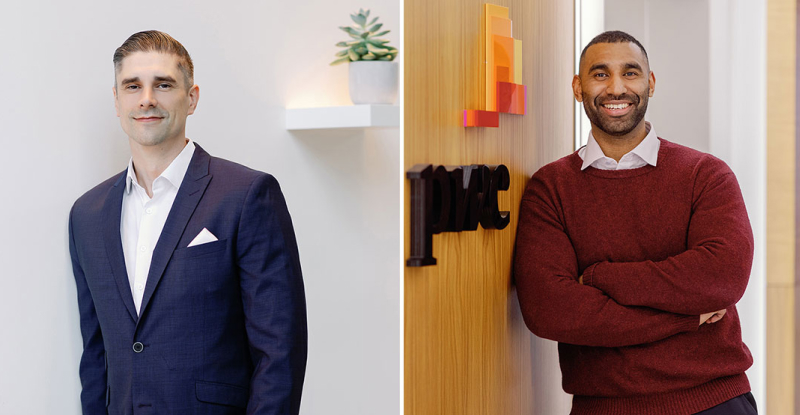
Learning to apply emotional intelligence in the workplace is critical to business success. In this on-demand webinar, accessible for up to 90 days from purchase, you’ll learn ways in which you can develop your soft skills and overall emotional intelligence to help you thrive in and outside the workplace.
As Jennifer Gervès-Keen explains, there are many ways for leaders to boost their EQ. But all require a capacity and willingness to learn.
Emotional intelligence has become an increasingly critical leadership skill in today’s work environments. While the term is familiar to many, the definition of emotional intelligence has evolved considerably over the years.
CPA Canada spoke to Jennifer Gervès-Keen, an executive coach with JGK Consulting and developer of CPA Canada’s Using Emotional Intelligence to be a Better Leader online course, to provide her perspective on how emotional intelligence has evolved and its importance in today’s work environment.
How has the concept of emotional intelligence evolved?
Jennifer: The term has been around since the 1960s. At the beginning everyone thought of it in terms of soft skills and there weren’t many people who thought it was important. Now it has become an absolute must for leaders and is usually a core piece of any leadership training.
For years people were promoted on technical ability or because they were good at the job they were doing. For many organizations, that is still the case today. The reality is not everyone wants to be or should be in a leadership/management role. Some individuals simply won’t have the capabilities, skillsets or even the desire to be successful as a leader of others.
Smart organizations are now taking a closer look at providing all kinds of career paths. The more you can offer that choice, the more people you will have in leadership who want to be there—and more importantly, who have the skills to be there.
Why is emotional intelligence important?
Jennifer: The interesting thing I always find about emotional intelligence within organizations is that when your stress level rises, your emotional intelligence drops right at the moment when you need it most. The more stress you experience, the less you think about your impact on others and the more you think only about yourself. This obviously has an impact in our work environments when we need to work with others.
There are so many things going on for leaders in the current work environment—remote or hybrid work, diversity, equity and inclusion, tight labour markets and burnout, to name a few. COVID especially has shown us that the social side of connecting with people is incredibly important. The human side of business has become extremely challenging. All the studies are showing us that anxiety levels in the workplace are the highest ever seen.
More than ever, we need leaders who can connect to individuals, have the capacity and willingness to learn, and can adjust their style to what their teams need. It’s a reflection of the times we live in.
How do you define emotional intelligence?
Jennifer: There are four key aspects: self-awareness, self-management, social awareness (which includes empathy), and motivation.
Knowing yourself is an essential part of relationship building. An effective leader understands their own strengths and weaknesses, and the effect they can have on others.
In terms of self-management, emotionally intelligent individuals can exert self-control even when triggered and can manage their reactions to make sure an interaction is a positive experience.
Social awareness/empathy is not about being nice to people. It’s about understanding where they are coming from and knowing how they got to the opinions they have. That can be challenging within the diverse workforce we have today, where people come from all kinds of backgrounds and experiences.
Motivation is now becoming its own science and is a key piece of how you work. We used to think motivation was innate, but a lot of it can be developed. We have extrinsic motivation in our lives, like a paycheque, vacations, work environments, etc. But there are also intrinsic motivations—the internal drive we have in some form that links to our values and priorities and drives our behaviours. Intrinsic motivation is a powerful driver for all of us.
How do you assess a person’s emotional intelligence?
Jennifer: Organizations are using many different assessments to assess individuals’ emotional intelligence, from psychometric assessments to online programs. Many companies use them when looking at candidates for specific roles. None are perfect, nor are they failproof.
There are individuals within firms who are capable of faking emotional intelligence to get a job or promotion. But there are indicators to watch out for, such as inconsistency in their experience. For example, a person may be doing an amazing job with one group and the opposite with another. They could be catering to certain audiences and not caring about another. They may be good at managing up but present a different picture when they are talking to the team. Or they may not be open to feedback on their development.
If a person is only about prestige, title, salary—they might not be interested in the well-being of your team. But if a person finds meaning in their work, creates a positive work environment and helps others, it can make a big difference for the entire organization.
What can you do to develop skills in that area?
Jennifer: People used to think that people either had emotional intelligence or not. With the progress in neuroscience, we now know emotional intelligence can actually be learned. There are many ways to do it.
There are two key elements for learning emotional intelligence. You must be willing to do it, and you must want to do it.
Second, you have to be able to experience it and practise it through experiential learning. That means having conversations, seeing what works and what doesn’t, and learning through trial and error.
When do you know you have reached your emotional intelligence goals?
Jennifer: Emotional intelligence is continually evolving. You can never check a box to say you are done, especially these days, when people are going back to work with completely different sets of values, priorities and ambitions.
Emotional intelligence will stick if you keep practising it. When you don’t have anyone holding you accountable, it’s easy to revert to previous habits. A good practice is to take refresher courses and ensure you get regular feedback. It’s important to continue.
One interesting observation is that Gen Z is probably the most emotionally intelligent generation we have. As such, they’re expecting their manager to be the same. They are setting a pretty high bar when it comes to expectations of their leaders.
Denise J. Deveau is a Toronto-based freelance writer specializing in business and technology related topics.
Originally published by CPA Canada's news site.



